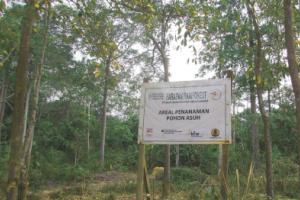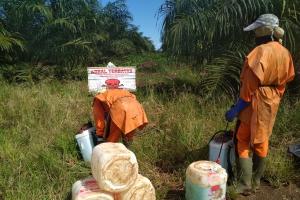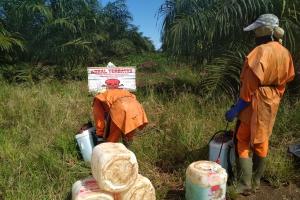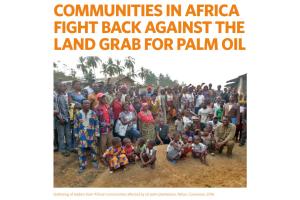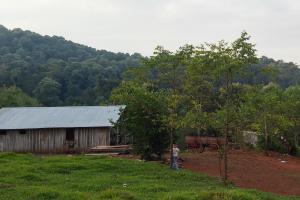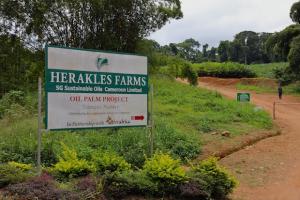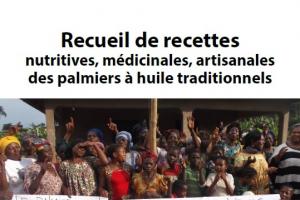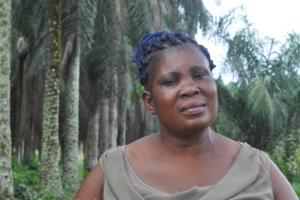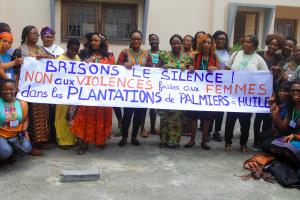Palm Oil
The oil palm tree is native to West Africa. It is an important tree for forest-dependent communities, their cultures and their economies. However, large-scale oil palm monocultures for industrial production (oil and agrofuels) have been driving deforestation and land grabbing in Southeast Asia. More recently, oil palm monocultures are also driving destruction in Africa and Latin America.
Back in 2004, conservation NGOs and the Indonesian Ministry of Forestry pioneered with a model called Ecosystem Restoration Concessions. This article takes a closer look at this model in the context of new and old threats to forests, and the global push for “forest restoration”. (Available in Indonesian).
Exploitative working conditions in the oil palm plantations’ industry in Indonesia are persistent and the main victims are mostly women. Although this situation is often overlooked, the production process of the world’s largest producer of palm oil is strongly influenced by its existence.
A new report on the state of industrial oil palm plantations in Africa shows how communities are turning the tide on a massive land grab in the region.
While the destruction of forest territories continues, more pledges, agreements and programs are being implemented in the name of ‘addressing deforestation and climate change’.
An interview with the activist Nasako Besingi. He organized communities in their protests against US agribusiness Herakles Farm’s palm oil plantations. Due to this engagement, he has been the victim of Herakles Farm and government physical attacks, intimidation and criminalization. (Available in Swahili).
Only available in French.
We said it in Mundemba, Cameroon, we reiterated it in Port Loko, Sierra Leone, we re-affirm this in Abidjan, Cote d’Ivoire: the abuse against women in and around industrial oil palm plantations must STOP!
